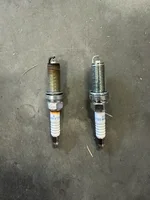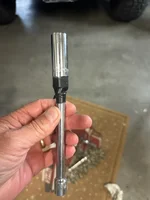I'm sorry, but you didn't ask specifically what you wanted to know about... you just asked why you needed to change the spark plugs as advised, and we gave you the answers... so now you tell us you were looking for something completely different than what was said, I don't think the fault lies with us, especially of the fact that you never restated your question more clearly and let this keep going on until you finally got mad at usThe history of spark plugs is surprisingly long and sordid. Before platinum/iridium alloys became a thing, there were very good reasons to change your plugs every few thousand miles. I knew that things had changed, but I wanted to know what the failure mode of a bad spark plug would look like. I asked a legitimate question, and got a lot of dickish comments in response.
the "failure mode" with fancy spark plugs is not really any different than any old school spark plug... they just wear away and your ignition system just keeps working harder and harder till it kicks the can
Last edited:


